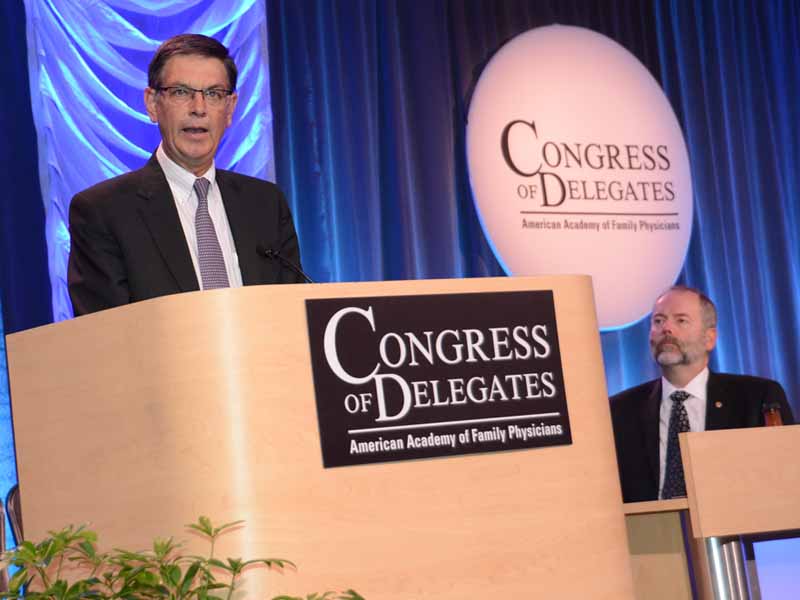ABFM to Pilot Longitudinal Assessment Alternative to Exam
October 09, 2018 11:09 am News Staff – After two years of positive feedback on its Continuous Knowledge Self-Assessment (CKSA) platform, along with other supporting evidence, the American Board of Family Medicine (ABFM) is poised to take the next step. ABFM Board Chair Jerry Kruse, M.D., announced during this year's AAFP Congress of Delegates in New Orleans that the ABFM will launch a pilot program in January to gauge the value and feasibility of a longitudinal assessment option to the 10-year certification examination.
The new option will be open to diplomates who are current with their continuous certification requirements and who are due to take the examination in 2019. Based on the CKSA, the longitudinal assessment pathway will deliver 25 questions online each quarter to diplomates who choose to participate.
"This approach is more aligned with the ongoing changes in medicine and draws upon adult learning principles, combined with modern technology, to promote learning, retention and transfer of information," Kruse said in an Oct. 9 ABFM release. "Over time, we will be able to assess the core clinical knowledge of board-certified family physicians and recognize the vast majority who work to keep up to date to take care of their patients."
According to the release, feedback from the more than 24,000 family physicians who have participated in CKSA since its Jan. 19, 2017, launch indicates that this model provides continuous, systematic learning; successfully identifies knowledge gaps; and is widely regarded as a useful and convenient platform.

Jerry Kruse, M.D., chair of the American Board of Family Medicine's Board of Directors, announces the upcoming launch of a continuing certification pilot program during the 2018 Congress of Delegates in New Orleans.
Last summer, the ABFM commissioned an independent, randomized survey of diplomates who recently took the 10-year examination to solicit their views on various options to the exam. Respondents to the survey, conducted by the University of Florida, identified the longitudinal assessment model as the front runner.
"We believe that longitudinal assessment can meet many of the needs and desires we have heard voiced by family physicians," said Warren Newton, M.D., incoming ABFM president and CEO, in the release. "It will provide questions on a regular, longitudinal basis, in a format that is much more convenient -- a few questions at a time, in the place and time of your choice."
In addition to not having to travel to a test center to take the certification exam, diplomates who pursue the longitudinal assessment pathway will be able to use clinical references during the quarterly assessment, much as they do in practice, Newton added.
The ABFM Board of Directors approved the pilot earlier this month, and it will be presented to the American Board of Medical Specialties' (ABMS') Committee on Continuing Certification for approval in November. Stay tuned for more details after that process is completed.
The ABFM's announcement is the latest development in a rapidly evolving continuing certification landscape.
An AAFP task force formed in July 2017 to, among other tasks, evaluate alternative methods of achieving ongoing board certification in family medicine, delivered its recommendations to the AAFP Board in July of this year. And the ABMS' Continuing Board Certification: Vision for the Future initiative, a multistakeholder, collaborative effort launched in September 2017 "to envision a system that is responsive to the needs of those who rely on it and that is relevant, meaningful and of value to physicians," continues its work to create recommendations for consideration by the ABMS and its member boards.